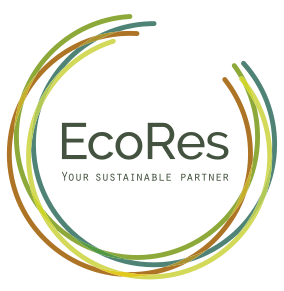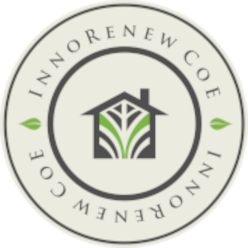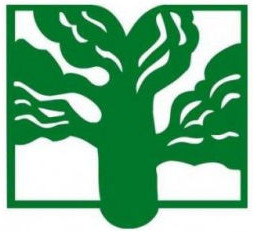PARTNERS
The Department of Building Lifecycle Management – BLM at KIT was spun off from the Institute for Industrial Building Construction (ifib) in early 2010 in the wake of the restructuring of the architecture faculty.
In research and teaching, the BLM focuses on the influence of information technologies on design, construction and use processes. The development, application and transfer of integrative computer-assisted planning and cooperation methods – in the sense of integrated building lifecycle management (BLM) – and the development and application of corresponding data models and IT tools are key departmental approaches.
The targets, firstly, are the development of methods and tools to increase project and process quality as well as planning efficiency, and, secondly, with respect to sustainable, goal- and requirement-oriented planning to improve the quality of the product or design object itself over its entire lifecycle. The interdisciplinary employee structure of the BLM enables the coupling of integrative systemic approaches with detailed specialist knowledge.
KIT combines the traditions of a renowned technical university and a major large-scale research institution in a very unique way. In research and education, KIT assumes responsibility for contributing to the sustainable solution of the grand challenges that face the society, industry, and the environment. For this purpose, KIT uses its financial and human resources with maximum efficiency.
The scientists of KIT communicate the contents and results of their work to society. Engineering sciences, natural sciences, the humanities, and social sciences make up the scope of subjects covered by KIT. In high interdisciplinary interaction, scientists of these disciplines study topics extending from the fundamentals to application and from the development of new technologies to the reflection of the relationship between man and technology.
For this to be accomplished in the best possible way, KIT’s research covers the complete range from fundamental research to close-to-industry, applied research and from small research partnerships to long-term large-scale research projects. Scientific sincerity and the striving for excellence are the basic principles of their activities.
Website: http://www.kit.edu/
EcoRes facilitates the transition of your organization towards sustainability through a portfolio of services that covers the whole lifecycle of an Sustainability Strategy:
- Initial assessment of your sustainability issues (360°);
- Support in defining your sustainability transition strategy;
- Support in the development of innovative solutions and their implementation (from niche to scaled up solutions);
- Stakeholder engagement and integration within your ecosystem;
- capacity-building for staff to sustain your transition;
- Support from a network of key experts to inspire your projects
Website: www.ecores.eu
Centro Tecnológico Del Mueble y la Madera de la Región de Murcia (The Technological Centre of Furniture and Wood of the Region of Murcia – CETEM) is a non-profit research and training centre born as an industry association in 1994 with the support of the regional and national government, as well as the EU. It is located in the second biggest and most important furniture industrial region in Spain. CETEM is entirely devoted to supporting and promoting the furniture and wood industries through research, innovation and training. Most of these companies are in continuous search of ways to innovate their products through technology that increments its value; many even get actively involved in the development of R&D projects and in training activities.
Website: http://www.cetem.es/
InnoRenew CoE is an independent research institute established in 2017 through the InnoRenew project (H2020 WIDESPREAD-2-teaming: #739574). Research targets renewable materials and sustainable buildings, specifically innovative approaches to wood and its use, with the goal of transferring scientific knowledge into industrial practice. InnoRenew CoE’s international, interdisciplinary team of scientists and professionals is available for independent consultation, project work or Living Lab InnoRenew collaboration.
InnoRenew CoE sees solutions to the climate crisis in the science of buildings and materials; however, many challenges remain: addressing sustainability in building construction, operation and use; optimising renewable materials; understanding human patterns of behaviour within the built environment; improving occupant well-being and enhancing social cohesion.
Confronting these challenges through interdisciplinary science will allow us to construct a built environment that is sustainable, healthy and supports society’s growing need for advanced building and renovation techniques.
Success in this endeavour will be built upon InnoRenew CoE’s foundation of scientific work, creativity, innovation, industry cooperation and societal engagement.
Our vision is to be both a world leader in the interdisciplinary science of the built environment and a model for international research excellence, industrial collaboration and public engagement.
InnoRenew CoE’s mission is to advance the state of the art and achieve scientific and innovation excellence through interdisciplinary science, especially in our two key research areas: wood modification and restorative environmental and ergonomic design (REED).
Website: https://innorenew.eu/
The University of Forestry (UF) – Sofia is a nationally recognized educational and scientific centre, called to provide highly qualified specialists with higher education, as well as to develop scientific and research activities in the fields of Forestry, General Engineering, Earth Sciences, Veterinary Medicine, Plant Breeding, Plant Protection, Tourism, Administration and Management. With its highly educated academic staff of nationally recognized and internationally recognized lecturers and scientists, the University of Forestry provides personnel recruitment and scientific servicing of major branches for the country and their sectors – forestry, woodworking and furniture industry, engineering design, ecology and environmental protection, landscape architecture, agriculture, veterinary medicine, and alternative tourism. As an autonomous university, UF seeks to maintain and develop an academic environment in which not only the training of qualified staff is achieved, but also to educate socially responsible individuals showing entrepreneurship, adaptability and creative capabilities for successful professional realisation, adopting the European values for lifelong learning and contributing to the prosperity of Bulgaria and the development of the European Union towards a “knowledge-based economy”. The activity of the UF for the fulfilment of this mission is based on the country’s traditions in higher education, the achievements in the above-mentioned fields with full respect for the interests of the Republic of Bulgaria and harmonisation with the requirements of the European higher education and the trends in the development of the European educational and scientific space.
Website: https://ltu.bg/en/





